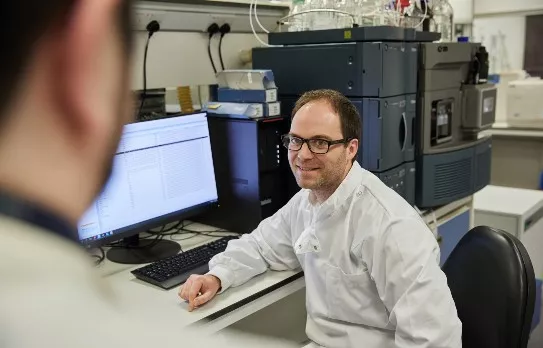
Our researchers have harnessed artificial intelligence (AI) to detect clues of type 1 diabetes in children’s GP records. This could help them receive a diagnosis sooner and avoid dangerous diabetic ketoacidosis (DKA).
A quarter of children and young people aren’t diagnosed with type 1 diabetes until they are in DKA, but spotting diabetes early can help to avoid this.
With our funding, Dr Julia Townson and team at Cardiff University used AI and electronic health records to develop a tool to predict type 1 diabetes. The researchers trained the AI tool using data from 1 million children in Wales to detect patterns in their GP records that could signal they have undiagnosed type 1 diabetes.
The team tested different combinations of factors from GP records, such as urinary infections or bedwetting, family history of type 1 diabetes and being prescribed antibiotics, to discover which could best predict a type 1 diagnosis.
To see if the predictive tool could correctly spot children already diagnosed with type 1 diabetes, researchers then assessed how well it worked using health records from another 1.5 million children.
What the study found
Our researchers found the tool could successfully alert doctors in advance for 72% of children who would go on to develop type 1 in the following 90 days. On average, it would have allowed children to be diagnosed – and started on life-saving insulin therapy – nine days earlier than they were. In some cases, this could be the difference between life and death.
The tool holds big potential to provide a vital new avenue for early type 1 diabetes diagnosis in children. Further work is still needed to figure out the best way to set alert levels so that the tool is helpful without causing too many false alarms. The researchers also plan to explore how the tool could be widely introduced and used by GPs in primary care.
Dr Lucy Chambers, Head of Research Communications at Diabetes UK, said:
“Type 1 diabetes isn’t currently preventable and is an extremely serious condition. If left undiagnosed, it can progress and lead to dangerous complications very quickly, so finding a way to catch the condition and treat it early could help to avoid emergency hospital treatment and save lives.
“This research, funded by Diabetes UK, could in the future be used by the NHS to help alert GPs to the possibility of a child developing type 1 diabetes, helping more children get an accurate and rapid diagnosis, and have the best possible start to life with type 1 diabetes.”
The full research paper has been published in The Lancet Digital Health.
